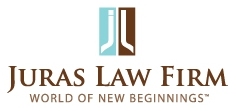Category: Best E-1 visa attorney in Phoenix, Best immigration attorney, Canadian investors in Phoenix, Canadians in Arizona, Canadians in Phoenix, Czech investors, E-1, E-1 visa attorney, Immigration attorney Phoenix, Immigration lawyer Arizona, Immigration Lawyer Scottsdale, Investor Visa Attorney, Non-immigrant visas, Top immigration attorney, Uncategorized, visa for Canadians
Tags: Best immigration attorney in Scottsdale, E-1 attorney in Scottsdale, E-1 visa, E-1 visa attorney, E-1 visa attorney in Phoenix, Top immigration attorney in Phoenix
E-1 visa requires (a) a treaty, (b) the individual or business possess the nationality of the treaty country, (c) the
activities the applicant will engage in constitute “trade”, (d) the trade is
substantial and (e) principally
between the US and the treaty country, (f) if an employee is the applicant, (s)he
is destined
to an executive or supervisory position or possesses essential skills to the US
operation and (g) intends to depart the US when the E-1 status terminates.
The items of “trade”
include but are not limited to goods, services, international banking,
insurance monies,
transportation, communications, data processing, advertising, accounting,
design and engineering,
management consulting, tourism, technology and its transfer, and some news-gathering
activities. As you can see, it does not have to be only
physical goods. Here is an example.
My client owns a Canadian franchised custom home building and renovation company that offers its clients the home building and renovation services through the company’s network of franchisees. My client formed a US company to engage in the business of offering and granting franchises in the United States. The Canadian company provides accounting, legal, broker, marketing and training services to the US company. There is an actual exchange of services and moneys that create transactions considered “trade”. E-1 visa was approved quickly.
Please note that this
article does not constitute a legal advice. We simplified the law to
outline one aspect of E-1 visa. If you
would like us to discuss if you qualify for E-1 visa and help us get you an E-1
visa, call our experienced E-1 visa attorney at 480-425-2009 or schedule your
consultation online.
